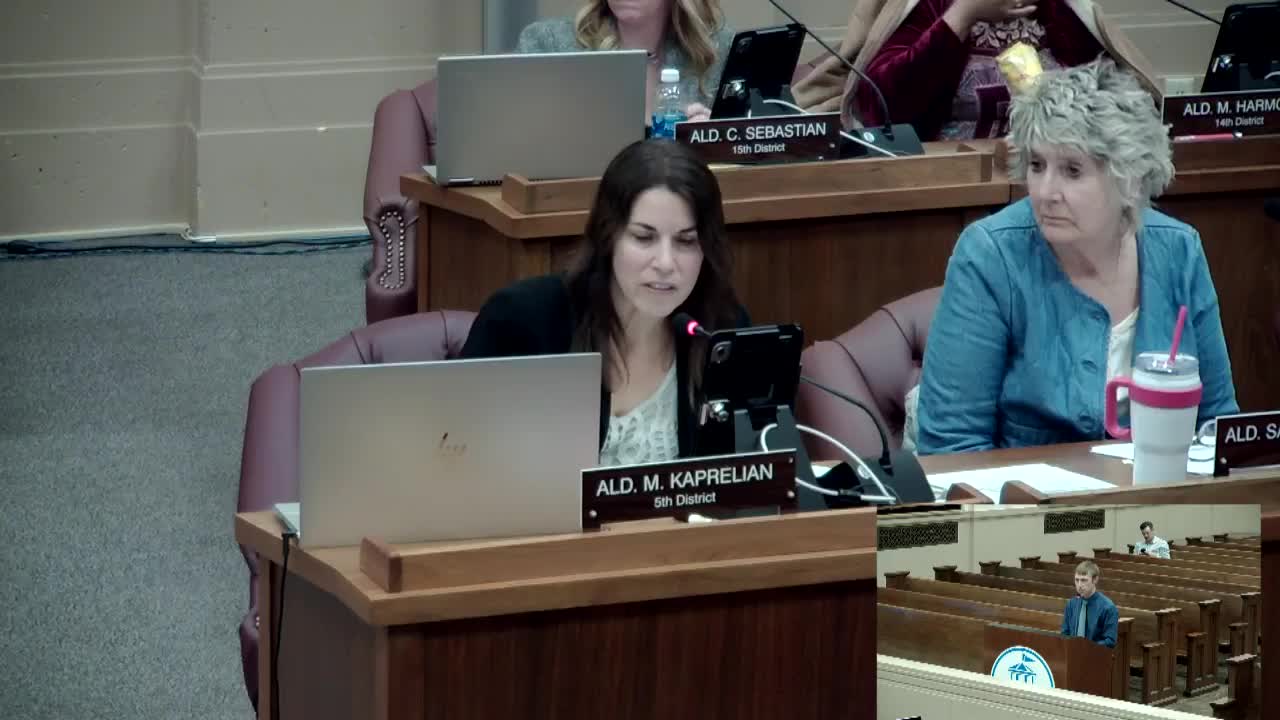Council debates and amends ordinance changing common council committee structure
Get AI-powered insights, summaries, and transcripts
Subscribe
Summary
After extended debate March 4, the council considered an ordinance to change who appoints aldermen to standing committees and how committee chairs are selected; members approved several amendments affecting term limits, committee chair selection and ex-officio membership.
The Racine Common Council spent substantial time on March 4 debating an ordinance (filed as ordinance 0001-25) that would change the council’s committee structure, including who appoints members to standing committees and how committee chairs are chosen.
Key changes and votes: Councilors debated whether the mayor or the council president should appoint members to the standing committees. A motion to restore the mayor’s appointment power was defeated. Councilors then approved amendments that (1) established a two-consecutive-year limit for service as council president and as vice president, (2) directed that the chair and vice chair of the three principal standing committees be selected by the members of each standing committee (to be chosen at that committee’s first meeting following the organizational meeting), and (3) designated all aldermen as ex officio members of standing committees with participation privileges but without a committee vote. The city attorney explained those changes and how they interact with the municipal code’s organizational-meeting and committee provisions.
Debate highlights: Supporters of the changes argued they strengthen the legislative branch’s internal leadership and allow more aldermen to gain committee leadership experience. Opponents argued the mayor’s traditional appointment authority preserves separation between executive and legislative functions and cautioned that transferring appointment powers could politicize committee assignments.
Procedure and next steps: Several specific red-line amendments to the code were considered point-by-point at the meeting; councilors offered and voted on friendly amendments and procedural clarifications. Council members who proposed changes said some further cleanup language may be necessary to reconcile references in the code; staff and the city attorney said final drafting and ordinance language cleanup would be prepared after the council’s policy decisions.
Why it matters: The ordinance alters routine internal governance of the city’s legislative body — changing how committee leadership and membership are assigned, how long leadership terms can run, and who may officially participate in committee discussions. Those ground-level governance rules shape how council business is considered before it reaches the full body.
Ending: Councilors approved the recorded amendments and directed city staff to prepare final ordinance text reflecting the votes and any necessary technical edits for a subsequent formal adoption or final reading.
